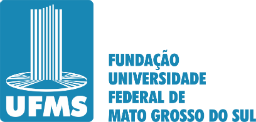Urban Waters: in direct to hydrical security
DESCRIPTION
Flooding in urban areas from extreme rainfalls has caused material, economic, environmental and human losses in several locations around the world. Flood forecasting is particularly relevant in urban environments, where most of the population is concentrated. The cities are in permanent growth and development, which is usually faster than the development of the municipal drainage system. Combined with the threat of climate change, increased urbanization and a precarious drainage network, the risk of flooding increases if not mitigated by adequate risk management.
Thus, flood and flood forecasting models are important resources in the integrated management of rich water resources in cities. However, there are still few cities that have flood warning systems in real time. Since the improvement of existing conventional infrastructure has a high cost, urban areas have reincorporated their natural systems. Over the past 20 years, wetlands have emerged as a promising and multipurpose storm water problem. Constructed wetlands have high ecological potential and low life cycle costs, protect urban areas against flooding, and offer recreation and city beautification facilities. Little research exists examining the implications of wetlands constructed in urban in terms of design and planning at multiple scales. Thus, in this project we will:
- develop a real-time flood warning system considering multiple uncertainties;
- establish design guidelines for wetlands for storm water treatment purposes;
- evaluate meteorological radar data from observed rainfall data;
- develop and evaluate methods to generate land cover maps and digital terrain models, which are required as input data for the alert system; and
- map and characterize urban forests.
We hope that the results of this proposal can have a great scientific impact and be implemented in a practical way in several cities around the world. The project is coordinated by José Marcato Junior, from the Faculty of Architecture, Engineering and Geography of UFMS, with the participation of researchers from nine international universities.
COORDINATOR
Dr. José Marcato Junior (FAENG)
ORCiD: https://orcid.org/0000-0002-9096-6866
E-mail: jose.marcato@ufms.br
MEMBERS
Dr. Jonathan Li (University of Waterloo)
OrCiD: https://orcid.org/0000-0001-7899-0049
Dr. Paulo Tarso Sanches de Oliveira (Universidade Federal de Mato Grosso do Sul)
OrCiD: https://orcid.org/0000-0003-2806-0083
Dr. Johannes Gérson Janzen (Universidade Federal de Mato Grosso do Sul)
OrCiD: https://orcid.org/0000-0003-3850-141X
Dr. Dulce Buchala Bicca Rodrigues (Universidade Federal de Mato Grosso do Sul)
OrCiD: https://orcid.org/0000-0001-9637-5250
Dr. Letícia Couto Garcia (Universidade Federal de Mato Grosso do Sul)
OrCiD: https://orcid.org/0000-0003-3081-8973
Dr. Rafael Dettogni Guariento (Universidade Federal de Mato Grosso do Sul)
OrCiD: https://orcid.org/0000-0003-2035-2030
Dr. Peter Troch (University of Arizona)
OrCiD: https://orcid.org/0000-0001-9275-1546
Dr. Hoshin Gupta (University of Arizona)
OrCiD: https://orcid.org/0000-0001-9855-2839
Dr. Franz Rottensteiner (Leibniz Universitat Hannover)
OrCiD: https://orcid.org/0000-0003-1942-8210
Dr. Heidi Nepf (Massachusetts Institute of Technology)
OrCiD: https://orcid.org/0000-0002-3663-9071
Dr. Hans-Gerd Maas (Technische Universitat Dresden)
OrCiD: https://orcid.org/0000-0001-9034-3469
Dr. Annete Eltner (Technische Universitat Dresden)
OrCiD: https://orcid.org/0000-0003-2065-6245
Dr. Jose Goes Vasconcelos (Auburn University)
OrCiD: https://orcid.org/0000-0003-0438-4286
Dr. Stefan Hagemann (Helmholtz-Zentrum Geesthacht)
OrCiD: https://orcid.org/0000-0001-5444-2945
Dr. Farid Melgani (Universita Degli Studi di Trento)
OrCiD: https://orcid.org/0000-0001-9745-3732
Dr. Rui Miguel Lage Ferreira (Universidade de Lisboa)
OrCiD: https://orcid.org/0000-0003-2941-0743
Dr. Mark Nearing (United States Department of Agriculture)
OrCiD: https://orcid.org/0000-0003-2444-4960

